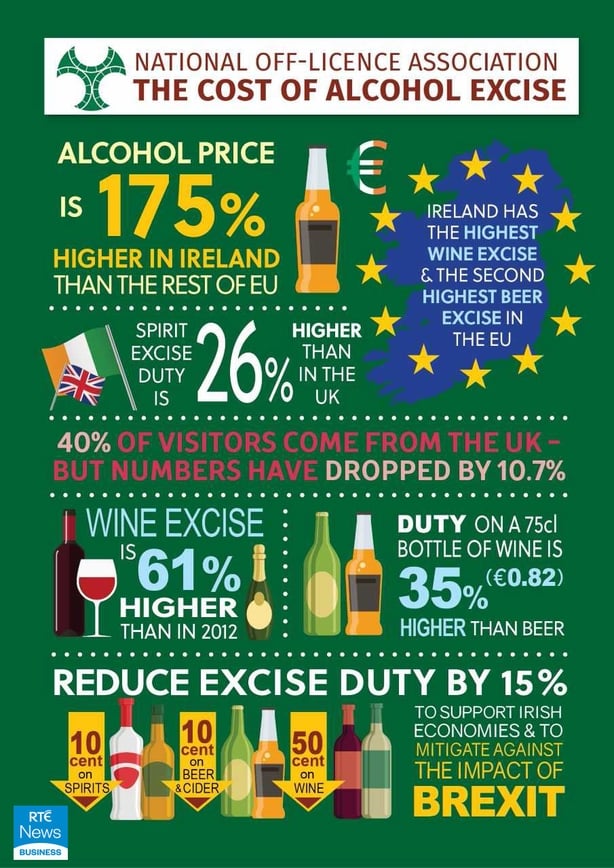A new survey from the National Off-Licence Association (NOffLA) shows that 67% of off-licence retailers believe that a reduction in excise on alcohol will mitigate against the likely impacts of Brexit.
NoffLA's annual members' survey results is part of the association's 2018 Pre-Budget Submission to the Department of Finance.
The survey reveals that 75% of surveyed off-licences experienced either negative or no growth in their businesses in 2016.
64% stated that their sales volumes had declined by up to 40% since the first excise increase in 2012 and 83% reported that below cost invoice selling will have a negative impact on their businesses in 2017.
The survey also shows the reality of the threat posed by Brexit.
The devaluation of sterling and rise in cross-border shopping - as evidenced by the big increase in the number of Irish registered cars in Northern Irish shopping centres last year - means that off-licenses in the border counties are in danger of collapse.

The association pointed out that the off-licence sector has lost 3,000 jobs since 2008.
It has called on the Government to reduce excise duty on alcohol by 15% which would see the prices of spirits, beer and cider fall by 10 cent while wine would decrease by 50 cent.
It also wants to see a reintroduction of a ban on the below cost selling of alcohol, and establish tighter control on out-of-state imports in terms of VAT and excise collection.
"The independent off-licence sector continues to face significant challenges associated with a punitive alcohol tax regime that is not in line with other European nations, and is damaging not only local communities, but also our national competitiveness," commented Evelyn Jones, Government Affairs Director of NOffLA.
"This situation has now been exacerbated by the likely impacts of Brexit, and the debilitating impact cross-border trade will have on Irish SMEs," she added.

